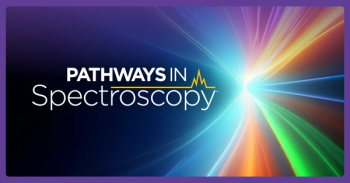
Metrohm USA’s Young Chemist Award Winner to be Presented at Pittcon 2019
Jeffrey Lopez of the Massachusetts Institute of Technology (MIT) in Cambridge, Massachusetts, has been chosen as the winner of Metrohm’s 7th Annual Young Chemist Award, to be presented at Pittcon 2019 in Philadelphia, Pennsylvania, at 3:00 pm on March 20.
Jeffrey Lopez of the Massachusetts Institute of Technology (MIT) in Cambridge, Massachusetts, has been chosen as the winner of Metrohm’s 7th Annual Young Chemist Award, to be presented at Pittcon 2019 in Philadelphia, Pennsylvania, at 3:00 pm on March 20. The presentation will take place at Metrohm’s booth, #1929, where Lopez will present a short overview of his work.
Lopez is a postdoctoral fellow at MIT, where he works under the supervision of Prof. Zhenan Bao, the K.K. Lee professor of chemical engineering, and by courtesy, professor of chemistry, materials science, and engineering.
Lopez’s research focuses on stabilizing lithium electrochemistry for high-energy density batteries. New materials for these types of batteries must be developed to support greater use of electric vehicles, allow for grid-scale energy storage, and meet the demands of new electronic applications. Lopez’s work has helped to identify methods to stabilize these electrodes with polymer coatings and to understand the coating properties that influence lithium deposition.
A $1000 runner-up prize was awarded to Juliane Sempionatto from the University of California San Diego for her work on next-generation wearable devices based on electrochemical (bio)sensors.
Edward Colihan, who is the president and CEO of Metrohm USA, said that the quality of submissions for the company’s Young Chemist Award improves every year. He went on to say that the award is making a real impact by highlighting the very real problems solved by these chemists and by rewarding their success. “This is a true differentiator for our young scientists,” he said.
The Young Chemist Award is open to all undergraduate, graduate, post-graduate, and doctorate students residing and studying in the United States and Canada, who are performing novel research in the fields of titration, ion chromatography, spectroscopy, and electrochemistry.
Newsletter
Get essential updates on the latest spectroscopy technologies, regulatory standards, and best practices—subscribe today to Spectroscopy.




